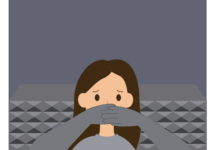<em>Trigger warning: References to sexual assault, rape, and violence.</em>
I have a love-hate relationship with OMGUW. Between the debates, throwaway insults and snarky comments, I’ve heard it described as the “vibrant community of UW” and the “underbelly of the student body.” As a procrastinator, I keep going back, drawn in by the open space to complain.
I read a new thread the other day which changed my mind. What started as jokes devolved into unsettling comments about perpetuating rape on UW campus. Before the moderators stepped in, the dialogue had used extremely disturbing language to discuss how to assault unsuspecting women, past successes, and tips.
This triggered an anxiety attack in myself. Here’s the thing; I’m all for the free speech on this campus. However, in that moment of ‘free speech’, a vital human right was taken away. The right of women, sexually marginalized communities, and myself to feel secure was extinguished.
Leaving class, I looked at everyone who I perceived as male and felt unsafe. I thought about dropping out because I didn’t want to study in a community who would casually discuss my assault then claim it as a “safe space.” I was angry and disappointed. Memories of experiences I had suffered came flooding back.
Normally, I can control this anxiety when someone yells at me from a car or harasses me at school. However, when my online community talks this way, I get triggered into a panic. When other people read those comments that have also experienced varied types of assault in this community, they might also be triggered into debilitating reactions.
<em>Imprint</em> picked up the OMGUW controversy in the last issue. I was shocked to see printed screenshots of some of the comments. If an unsuspecting reader opened that page, they would be unprepared for what they would see. Just like when I read OMGUW, they might feel endangered.
This is not an issue of censorship. Open dialogue around tough issues like assault and misogyny is necessary. However, when it comes to printing volatile, harmful opinions, it is an issue of ignorance to student experiences. Just because one person can approach online discussions about rape and has the capacity to comment back does not mean that everyone will walk away unscathed.
So, how can UW students feel protected? The use of a trigger warning is helpful. By adding a warning, like the one beginning this article, you can inform readers of what they might encounter if they choose to read on. You are providing choice to a community that has suffered without choice. Where the choices they do make are shadowed by when and if they might be assaulted, or if something will bring up that memory.
We should talk about sexual assault on campus. It doesn’t sugar coat the reality of life for women and sexually marginalized communities. Using trigger warnings is reasonable because the people that it will help don’t need a reality check on campus. They don’t need to relive something that they know exists.
If we want to facilitate a better community, we should remember that we should be gentle with each other, so we can be strong together. I cannot implore OMGUW to be a better community, but I can encourage <em>Imprint</em> to use trigger warnings. If you are wondering where you should draw the line, consider this: “If I don’t take any precaution, will I hurt someone who is already struggling?”
Rebeccah Redden
3A Independent Studies





























